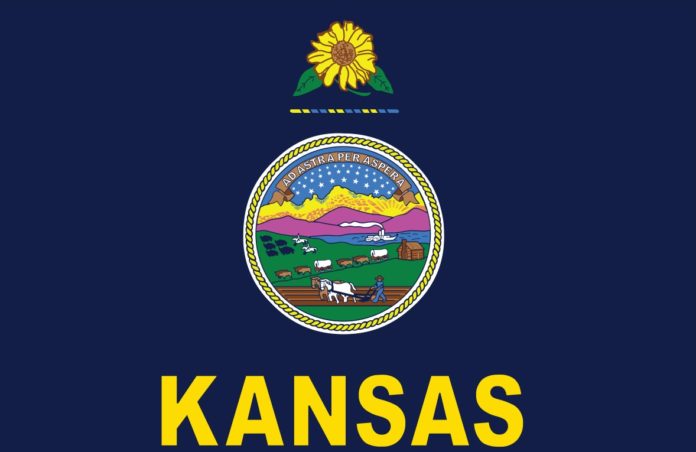A reluctant state task force on Friday agreed to spend up to $30 million on pay raises for workers at corrections facilities, state hospitals and veterans homes that are facing staffing shortages.
The SPARK committee – short for Strengthening People and Revitalizing Kansas – approved the money for the pay raises to shore up staffing at critical state facilities where vacancies range anywhere from 25% to 40%.
“This is a critical need. It’s an immediate need,” said Budget Director Adam Proffitt.

“These are facilities that truly need close to full employment to be able to assist the populations that they do,” Proffitt said.
The money would come from the roughly $1.5 billion the state received from the federal government to address the fallout from the COVID-19 pandemic.
The spending proposal would still need to be ratified by the State Finance Council, which is made up of the governor and legislative leadership.
The allocation – approved unanimously – would include $6.4 million in base pay increases for all corrections staff as well as nursing staff that works around the clock at state hospitals.
The plan also spends $1.6 million for $3,500 one-time bonuses for about 325 salaried staffers at around-the-clock facilities run by Corrections, the Kansas Department for Aging and Disability Services and the Kansas Veterans Affairs Commission.
Another $22 million would go toward various pay differentials, including a $1.50-per-hour pay bump for the estimated 3,900 staffers at facilities operated 24 hours a day all week long.
The pay differentials include another $2.50 an hour increase targeted for employees who work at around-the-clock facilities where there is a vacancy level of 25% or higher.
The governor has already implemented the base pay increases that are now being financed with existing resources within the agencies.
The administration sought to use COVID relief money to fund those raises to ease the financial burden on the agencies.
“We do need to find a way back to backfill that money,” Proffitt said.
“They have cash flow right now, but if we get another month, six weeks, seven weeks down the road, (the state) might not be able sustain that,” he told the panel.
Members of the task force questioned whether using one-time COVID-19 relief money was the best way to address pay raises.
They said the pay raises – a longtime issue in Kansas – should be addressed by the Legislature not through the SPARK committee.
“This is an issue that’s been around for 10 years,” said businessman Greg Orman, a member of the task force.
“Any perspective here that these are going to be temporary pay increases is probably not realistic,” he said.
“Anything that we do here, we have to think of as contributing to a permanent increase in pay,” he said.
“In my mind, this doesn’t make sense unless there’s an absolute commitment on the part of the Legislature and on the part of the administration to figure out how through the state general fund to continue to funding these pay increases,” he said.
Proffitt said he understood Orman’s concerns, adding that the governor’s budget request for fiscal year 2023 will likely include funding for pay raises that would allow the program to continue.
“Salaries in this manner in general are an ongoing thing,” said Senate President Ty Masterson.
“They really do need to be accommodated through the normal budget process, but I’m willing to do this particular one right now for this time,” Masterson said.
“But I would like to see any ongoing salaries for pretty much any segment of state government handled through our normal processes,” he said.
Bill Pickert, another member of the commission, also expressed reservations about approving money for salaries with one-time federal stimulus funds.
“I admit this is a critical need. It’s been a critical need in the state for a long time,” Pickert said.
“We’re kind of overriding the legislative process and the Legislature,” he said.
“This is clearly something that belongs in the normal general fund expenditures,” he said.
“I’m a little bit worried about bringing on the resentment of the Legislature for SPARK going in and doing something that, for whatever reason, the Legislature wasn’t willing to do on its own,” he said.
“I think we need to be very careful when we start doing these kinds of things,” he said.
Lt. Gov. David Toland, chair of the SPARK task force, said the goal of using the COVID relief money is to make long-term, one time investments in state needs.
However, there are other needs the money can meet as well, he said
“These dollars also though are here for us to respond to the immediate impacts of the COVID-19 pandemic, whether we’re talking about health impacts or the broader economic impacts that have created pressures in our economy,” Toland said.
“I think that’s what we have here where there’s an immediate concern and immediate need, which is are we able to fulfill our obligation to preserve the health and the safety of individuals who are in the care or custody of the state.”
hat went into greater detail for how the money












